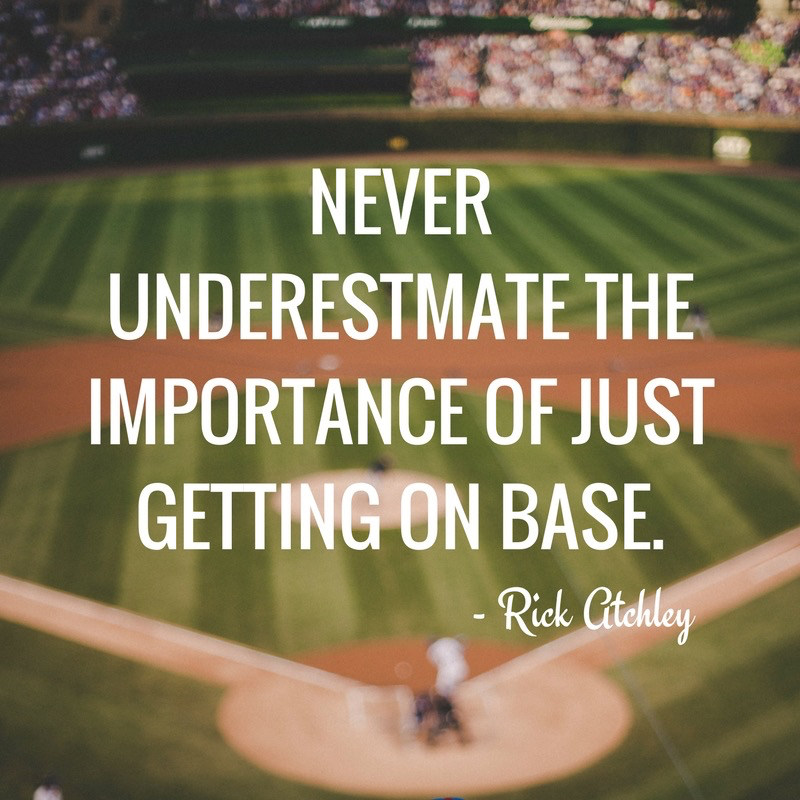
Mark 6:30–32 NIV
The apostles gathered around Jesus and reported to him all they had done and taught. Then, because so many people were coming and going that they did not even have a chance to eat, he said to them, “Come with me by yourselves to a quiet place and get some rest.” So they went away by themselves in a boat to a solitary place.
Have you ever had one of these days? You know, the days when, with every great intention, you set out to make a dent in your world or at least your inbox. You lay down a vision for your day and wake up ready to kick some tasks and take some notes but before you even sit down at your desk the phone rings…
and then someone walks in your office with a crisis that needs your input…
then something in your workspace or building breaks…
then your kid gets sick at school and you have to pick them up and take them to the doc and then to the pharmacy…
then… and then… and then…
We’ve all been there, right?
This is where Jesus’ ministry staff finds themselves on this particular day. The apostles were right in the thick of this kind of ministry whirlwind. They came to Jesus for a staff meeting to share with him all that they have been doing and to get a little encouragment and development. The problem is that ministry doesn’t stop. Not for staff meetings. Not for office hours. Not when you’re on vacation. Not in the minutes leading up to the beginning of the Sunday servoce. Not. Ever.
Mark reports that people and problems kept interupting this personnel meeting and was so consuming that the apostles looked around a few hours later and realized that they worked right through lunch.
That’s when Jesus says, “Let’s go. Get in the boat. We are taking a break.”
Jesus sensed what they needed was some space, some breathing room. In fact, Jesus himself was probably stretched thin and, no doubt, was still greiving over the execustion of his cousin, John the Baptist earlier in this chapter. In the midst of ministry still left to do, Jesus hit the pause button and had everyone head to the lake.
So Jesus and the staff climb into the boat, cast off, and for a moment… there is quiet. There is stillness. There is no one and no situation vying for their attention. For a moment.
Mark 6:33–37 NIV
But many who saw them leaving recognized them and ran on foot from all the towns and got there ahead of them. When Jesus landed and saw a large crowd, he had compassion on them, because they were like sheep without a shepherd. So he began teaching them many things.
By this time it was late in the day, so his disciples came to him. “This is a remote place,” they said, “and it’s already very late. Send the people away so that they can go to the surrounding countryside and villages and buy themselves something to eat.”
But he answered, “You give them something to eat.”
The people needing to see Jesus and needing a word or needing healing realized what was happening and ran around the Sea of Galilee to meet them on the other side.
When I visited this region we took a boat across the Sea of Galilee and it took us roughly 45 minutes to an hour.
I’m not sure how long it took Jesus and the apostles to make the trip but I know this: They only had a short break before they were thrown right back into the thick of ministry activity.
Maybe I’m looking to deeply into this story but it resonates with my heart. On the far side of the lake, the apostles were fading fast. They were hungry, bombarded, and seemingly overwhelmed. They get into the boat, receive a short repreive from their work, and then they are seemingly ready for the next wave of pastoral care. On top of that, Jesus doesn’t let them off the hook when it comes to continuing to meet the increased needs of the people they are serving.
“You give them something to eat.”
I hear Jesus saying, “I gave you a chance to rest. It was enough. I am enough. Let’s show them what The Father is capable of.”
Today marks the beginning of the season of Lent. Culturally this is a season where you might hear Jesus-people talking about how they are giving up ice cream or posting on Facebook about how they aren’t going to be posting on Facebook for a few weeks. The season runs for approximately 40 days leading up to Easter. In the grand scheme of the year and certainity for the totality of your life 40 days isn’t a very long time. I mean, by comparison, the MLB season is 182 days.
What if you looked at the next 40 days as a time of respite and preparation for what is coming next?
For most of us in ministry, Easter Sunday is… a pretty big deal. I know that ministry cannot and will not stop completely for this season but how can you push pause and get in the boat with Jesus for a brief RnR? Maybe you make room in your heart through refraining from an activity or giving up sweets or deactivating your social media platforms or… what ever that looks like for you. Let God breath into you for the next few weeks.
Not because it’s trendy or a tradition or tantalizing but because you need it.
You need to rest because on the other side of the lake, there are more poeple to serve.
On the other side of these 40 days, Jesus needs you to feed his people.


